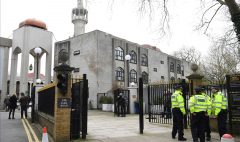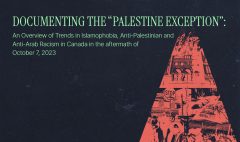What a supermarket shelf in Britain can tell you about Islamophobia in Germany
January 1, 2025 2025-01-26 0:04What a supermarket shelf in Britain can tell you about Islamophobia in Germany
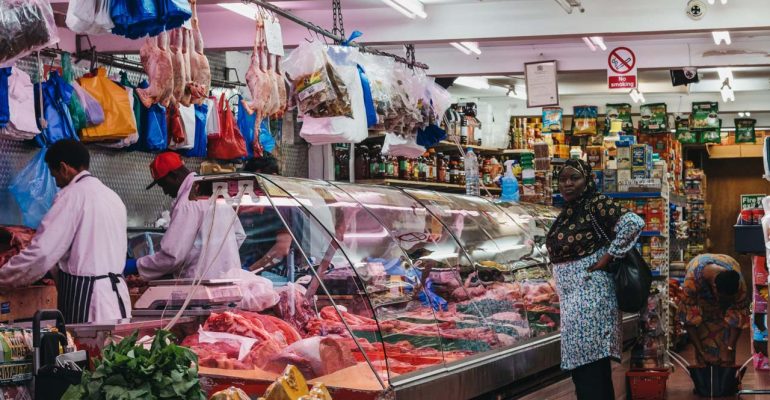
What a supermarket shelf in Britain can tell you about Islamophobia in Germany
British Muslims will proclaim that they are proud to be British, while in Germany not a single non-indigenous German with immigrant roots and in their right mind would say “I am proud to be German.” Why would and should they, when to this day people like myself who were born and raised in Germany are not considered and accepted as equal Germans by the white powers that be and by the white majority society at large?
Article by Timo Al-Farooq
Britain and Germany are only one to two hours apart by plane, but the differences in religious accommodation of Islam can be measured in light-years.
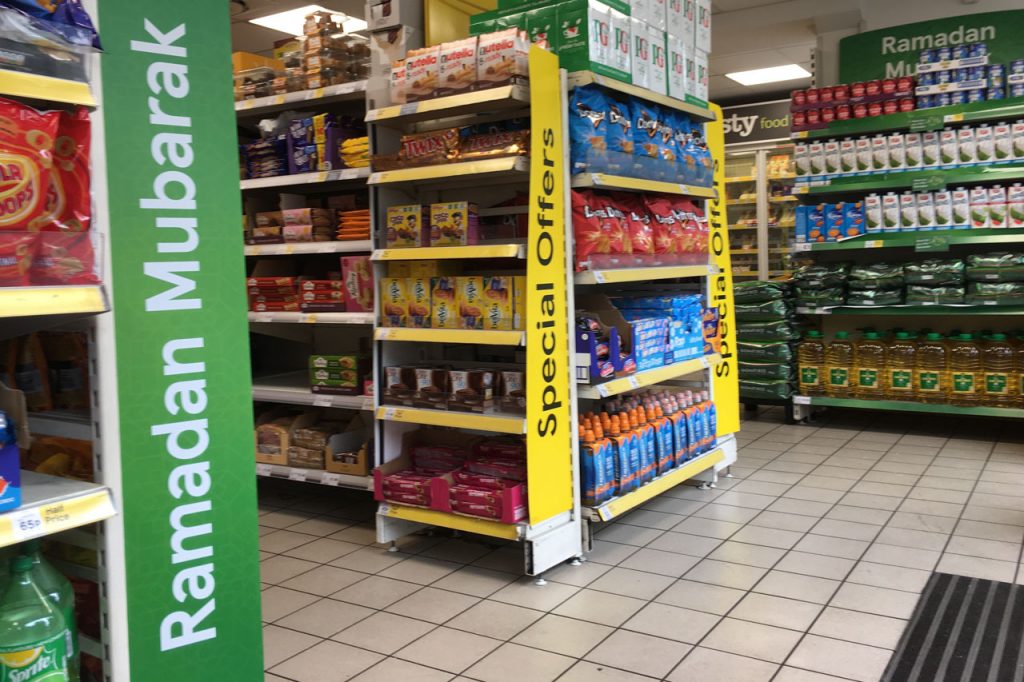
What’s so special about a photo of a supermarket aisle? Usually nothing, but the picture above that I took in London during last year’s Ramadan inadvertently shows the key difference in levels of social progress between my home country of Germany, and Britain. And this is also one of many reasons why the only truly multicultural country in Europe should be glad that it has finally left that sinking ship christened the SS European “Union”, even if it was for all the wrong reasons.
Let me explain: What you see above is a West London outlet of a Tesco supermarket — one of the UK’s largest grocery chains — wishing its Muslim customers a blessed Ramadan. In the UK nothing out of the drab ordinary, but for me, as a German, it is something that I have to this day never witnessed in any of the major German chains back home in Berlin, not even in the “ethnic” Muslim neighborhoods. And I am from Berlin’s Kreuzberg district, in a past life a vibrant Turkish and Kurdish area, until that white settler-colonialism better known as gentrification veni-vidi-vicied our posteriors out of our people-of-color safe spaces and into the undesirable and more affordable margins of the city.
Germany’s unholy approach to the Holy Month
While in the UK social inclusion of the Muslim faith is the consensual norm rather than the exception, in Germany every tentative step towards religious accommodation put forward by progressive forces (especially if the religion in question is Islam) is met with the full brunt of a reactionary and racist backlash: for example, the supermarket chain Kaufland’s decision two years ago to sell a Ramadan calendar was met with angry white consumers venting their ignorant bigotry on social media and calling for boycotts.
Even though individual stores in Germany do have Ramadan promotions, it is far from a concerted, broad “effort” as in Britain. Despite the fact that England and Germany’s Muslim population both lie at roughly 5 %, the disparity in levels of religious and social inclusion of people of faith other than Christianity and Judaism (and of immigrants and people of color in general by the way) is criminally high.
Again, take Berlin, for example, the self-proclaimed epicenter of German cosmopolitanism and worldliness, but where you will be hard-pressed to find a black bus driver, let alone hold a “higher” job serving the public. And the few ones that do drive a bus are sure to attract the unwanted liberal-racist attention of white Germans believing themselves to be progressive while bluntly staring at that black person as if he were E.T., as white Germans are the uncontested champions of what I like to call the (Liberal) Racist Stare: an atavistic phenomenon exclusively addressed to people of color and apparently singular to Germany (I have never encountered this in other white-majority societies with significant immigrant populations) where liberal racism and white bourgeois entitlement meet simple bad manners.
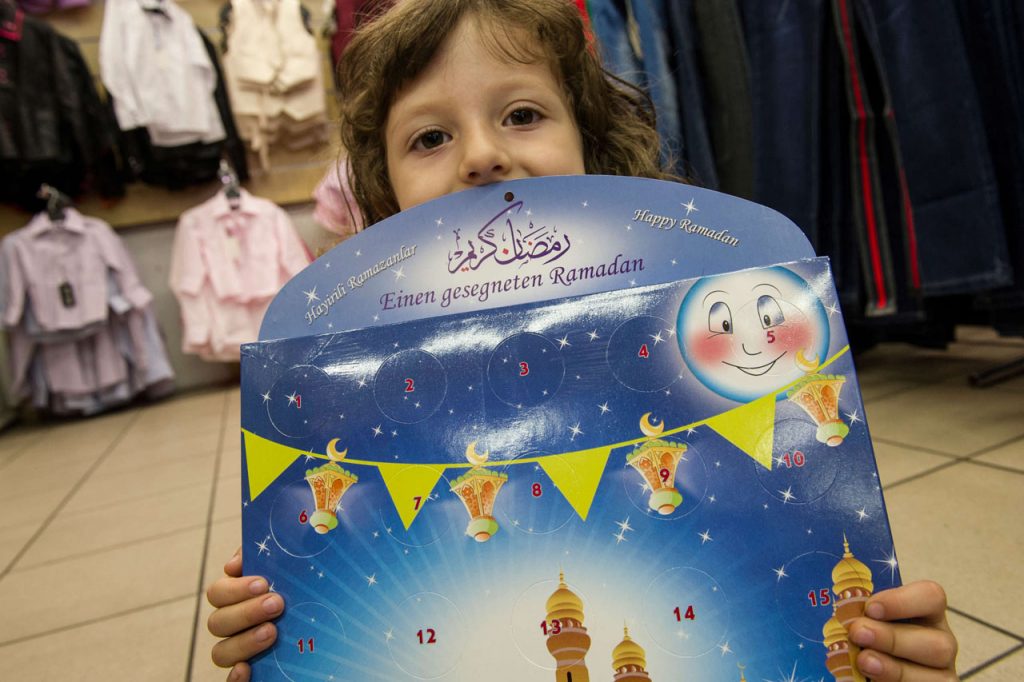
Should these colonizers with their orientalizing gaze tend to be somewhat “woker”, they will over-engage with said driver awkwardly, initiating small talk and dispensing with performative niceties intended to prove to the color-blind driver who couldn’t care less that one is oh so cosmopolitan and to oneself that one is not a racist. Sadly, such sorry displays of outrageous behavior are nothing more than a sad attempt at overcompensating for a cultural backwardness that exoticizes anybody who is not white and not indigenously German.
Returning to Ramadan: I am sure that none of those solitary German chain stores cautiously inching their way towards accommodating Muslim consumers would go as far as putting up a sign saying “Here for you this Ramadan” like Tesco did in another corner of the outlet mentioned above: simple words symbolizing the fundamental difference between empathy and indifference. They are a testament to what it means to actually go the extra mile in terms of social inclusion, beyond the finish line of mere tolerance, whatever profit-making motivation may lie behind this kind of symbolic gesture.
Not only could the strategic placement of the Ramadan Mubarak well-wishing be seen by every passerby on Bath Road glancing through the door of that store, but the season’s greetings appeared at not one, not two, but three neuralgic points within the environs of the premises. Proof of just how Tesco and other UK food retailers value their Muslim customers (again, for whatever capitalist-economic benefit).
On the other side (of the English Channel): If a German chain store would actually have the audacity to wish its Muslim customers a blessed Ramadan, especially with such intensity as Tesco did, all cross-party discursive hell would break loose in neoatheist Deutschland due to this kind of blatant kowtowing to the whims of a painstakingly constructed and orientalized historic “other.”
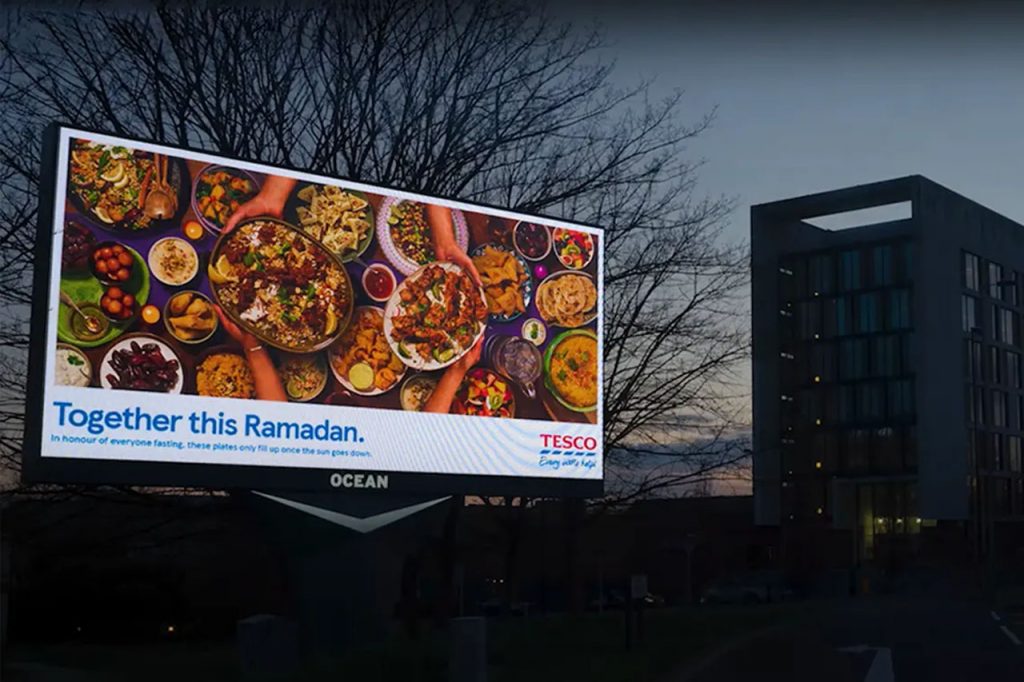
Cranford, the part of Hounslow where I took the picture, is not even an exclusively Muslim area. In the immediate vicinity of the world’s second busiest airport, London Heathrow (the busiest being Dubai), with descending passenger planes flying over your head by the minute (sometimes so close for comfort that you find yourself wondering if that flying cruise ship of an A380 is going to shave the top-floor off that airport Travelodge you’re walking past), the Eastern European “newer Brits” make up a significant visible portion of the local district population, next to the traditional South Asian Britons of various religious denominations.
Are any of the former offended by this blatant regard for Muslim culture? Is anyone of them crying wolf about a creeping “Islamization” as it would have been painted by many a white German consumer? No. And why should they: their sense of cultural identity is realpolitikal and strong enough to understand that a) Muslims – like all former subjects of the British Empire – are part and parcel of Britain and b) that the accommodation of one culture does not necessarily come at the neglect of another, as right-wing bigots will readily have you believe in their zero-sum game of cultural warfare.
Plus, given all the Eastern European supermarkets and off-licenses in an area with a traditionally heavy South Asian presence (around the corner from the Ramadan-well-wishing Tesco is an outlet of the Polish deli chain Mleczko, founded in 1996, in London by the way, not in Poland), it is clear that immigrant milieus can coexist wonderfully. And for that matter can live and let live alongside non-immigrant inhabitants just as well: between all the ethnic stores in this Western part of Hounslow you will also find the archetypical British sports pub: none of the hooliganesque-looking white people who you will usually see standing outside for a smoke during half-time seem to mind that on any given day the air reeks of subcontinental spices from the nearby delis, loud Punjabi Bhangra music pumps out of pimped motor vehicles and that most faces passing by are not white. And if they are, they are talking in Slavic tongues into their mobile phones and kids’ faces.
German Muslims: Shamed into hiding and segregation
Unlike in London (or in England in general), where newer Poles and older Pakistanis are allowed not only to keep, but to express their respective cultures with unrestrained abandon, Germany has a different approach to Diversity Management: it shames it’s immigrants (especially the ones with darker skin-tones and names like Muhammad or Mutombo) into submission and self-denial, subsuming them under a white German Leitkultur (guiding culture) that exclusively feeds on the cultural assimilation of ethnic minorities.
Bigoted reactions in Germany to all things Muslim are not surprising in an agnostic-at-best and neoatheist-at-worst country where minority representation and religious inclusion remains scandalously low, creating a climate that allows Islamophobia to flourish freely: Germany prides itself on being liberal and “tolerant” (by the way: tolerance is nothing but a bare minimum of human decency, so nothing to be proud of, dear white Germans), but doesn’t allow people of faith who choose (!) to wear religious headwear, be they Muslim, Jew or Sikh, to become public school teachers or police officers, or hold any other positions in the civil service.
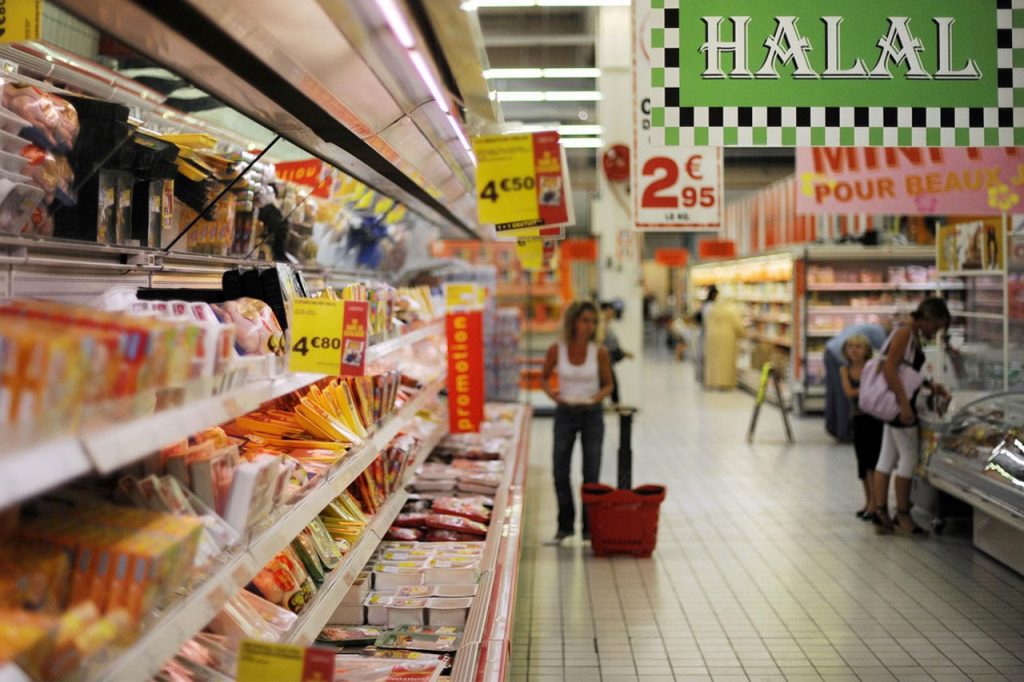
Especially Muslims are de-facto denied the right to practice their faith within the full freedoms legally guaranteed to them by the German constitution, racist public-opinion making them pray in nondescript back-alley mosques and basically forcing them to hide their full religious identity. And to shop in their own “ethnic” stores because Germany’s leading supermarket chains still vehemently oppose accommodating the tastes and related dietary requirements (e.g. halal-certified products) of a significant portion of the country’s population, demographically and in terms of buying power.
And while Sajid Javid, then Home Secretary under former Prime Minister Theresa May’s minority government, unveiled a “Ramadan Package” last year, a bundle of comprehensive security measures aimed at protecting mosques across England and Wales and ensuring the safety of Muslim worshippers in the wake of the New Zealand and Sri Lanka terrorist attacks, Germany – where Islamophobia and violence against minorities are dangerously on the rise like in many EU countries – had to my knowledge implemented no such broad and proactive measures.
By the way, Javid — like London’s Mayor Sadiq Khan, is a British Muslim. To this day, supposedly multicultural Germany has never had a Muslim government minister, and Berlin — the country’s supposedly diverse capital and home to the largest Turkish population outside of Turkey — has never seen a Muslim mayor.
This is (Muslim) England
All this points to the fact that in Britain, Islam is normalcy – despite what the Islamophobic English Defence League and assorted white trash Brexiteers might say or do. Britishness and Islam are not at odds with each other, and the fact that mainstream British society – no matter how fractured – has come to this consensus and Muslim cabinet ministers and mayors, hijab-wearing women in public service and halal certified international fast-food franchises like Nando’s and Quiznos are not an oddity but a nonchalant everyday reality of the British societal landscape, shows just how inclusive and advanced even a successfully brexiteering Britain is compared to the rest of right-wing populist and liberal racist Europe. One that really has no moral high ground to criticize others when in countries like Austria and Denmark Islamophobia and racism constitute key ideological pillars of state polices underlying anti-immigrant legislation.
During last year’s Ramadan at a session of the government’s Parliamentary Questions, Theresa May – between congratulating the Duke and Duchess of Sussex on the birth of their son and shamelessly instrumentalizing Liverpool’s miraculous remontada against Barcelona in the UEFA Champions League in order to raise parliamentary and public morale on the Brexit front – said:
“Monday marked the beginning of Ramadan, a time of peace, devotion, and charity. And I know that members from across the house will want to join me in saying to Muslims in the UK and across the world: Ramadan Kareem.”
An inclusive rhetoric bursting with agency and goodwill, virtually unthinkable in my home country of Germany, where the slightest accommodation of Muslim culture is all to often seen as a sign of weakness by a reactionary white establishment, and as fostering “Islamization”, each time leading to a full-blown cultural identity-crisis.
But Ms. May didn’t stop there, following up with:
“And later today I will be hosting a reception to celebrate Vaisakhi, and celebrate the immense contribution that the Sikh community makes to this country.”
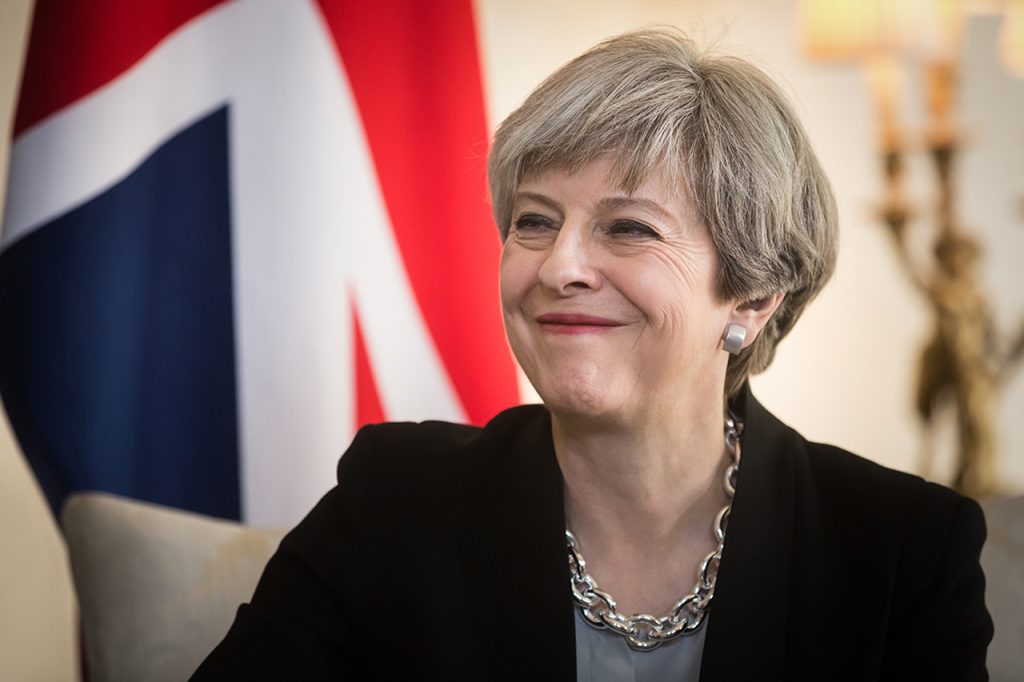
I cannot recall German Chancellor Angela Merkel – even though she has said and done more for the inclusion of Muslims in Germany than anyone in her position before her – standing at the lectern of the Bundestag (the German Parliament) during Ramadan and saying that she would celebrate Germany’s Turkish population’s immense contribution to the country (the post-war German economic miracle called the Wirtschaftswunder was basically their and other foreign guest-workers’ doing).
And the fact that too many Germans not only cannot tell the difference between a Hindu and a Sikh, in fact are not even aware of polytheistic Hinduism and monotheistic Sikhism being entirely different religions, but also stare at turban-wearing Sikhs on the streets with the same amused incredulity they harass bus-driving black people with, doesn’t help Germany’s case for inclusiveness and progressiveness either.
Britain remains the only truly cosmopolitan society in Europe, even after having left the EU. And despite rising Islamophobia and violence against Muslims in the country, enabled by the anti-immigrant rhetoric of a radically neoliberal Tory government led by Boris Johnson, Britain’s political spitting image of Donald Trump, Islam in Britain enjoys much more normalcy, nonchalant acceptance, and societal inclusion than in Germany.
British Muslims can be proud of themselves for having over the decades painstakingly achieved parity with their white counterparts: they are demographically well represented, have powerful pressure groups that hold unchecked white privilege to account and have the ability to successfully right societal wrongs inflicted on them (Islamophobia), and are well represented in all spheres of British society: civil service, government, media, security forces, health care, you name it.
Especially now, during the ongoing Covid-19 pandemic, Muslims’ contributions to keeping the troubled National Health Service (NHS) running and saving lives have been instrumental: the fact that of the first four British doctors to die of the virus in the frontline of duty were all Muslim speaks volumes about the inclusive nature of Britain where diversity and religious accommodation is not a Fata Morgana like in Germany, but a nonchalant and cerebral reality.
In Germany, hospital doctors are satirically called “Demigods in White.” Aptly named I would say, since they not only wear white, but the overwhelming majority of them are white – as are the nurses and administrative staff, despite Germany’s chronic shortage of qualified medical personnel. Every time I have entered a hospital or clinic in Germany, these buildings seem more like protected spaces of whiteness than diverse workplaces.
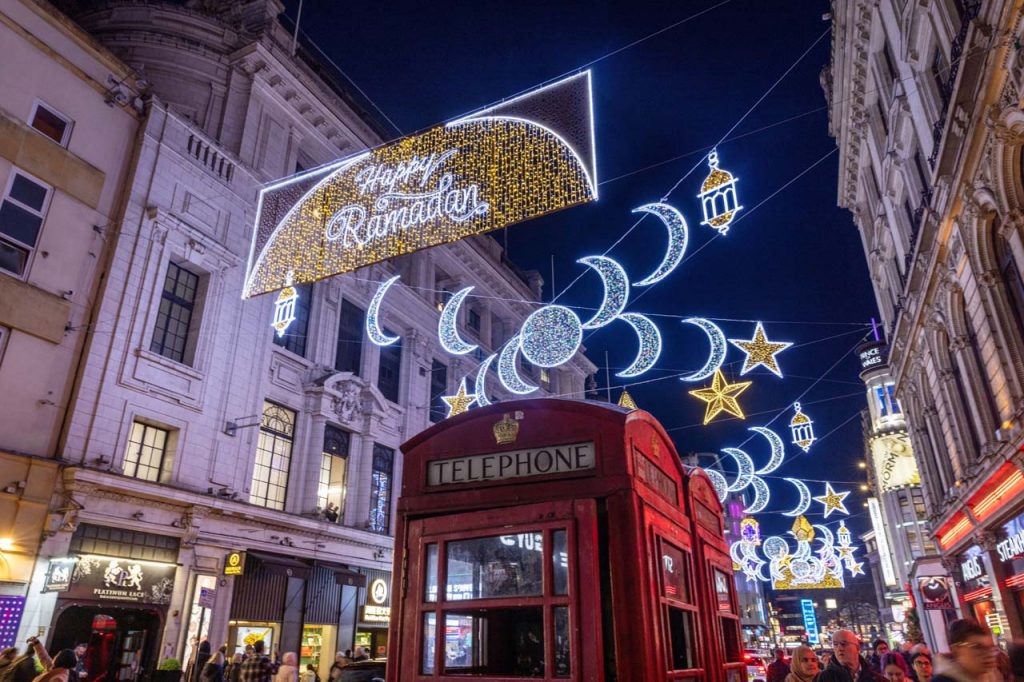
Furthermore, the self-confidence of British Muslims not only influences hegemonic narratives about them by reclaiming and correcting them, so that when they are sent back to their source they are more balanced in their representation, but British Muslims even manage to enter that hegemonic space of narrative construction and become an integral part of it, thus changing the negative way Islam is perceived and painted in the West in a more structural and long-term way.
And most importantly, unlike in Germany where German identity to this day is exclusively defined by whiteness, in Britain being British and being a person of color or of Muslim, Hindu or Sikh faith are merely two sides of the same inclusive coin: Britishness. Without batting an eye, British Muslims will proclaim that they are proud to be British, while in Germany not a single non-indigenous German with immigrant roots and in their right mind would say “I am proud to be German.” Why would and should they, when to this day people like myself who were born and raised in Germany are not considered and accepted as equal Germans by the white powers that be and by the white majority society at large?
Dear British Muslims, whenever Islamophobia in your country gets you down and becomes too much to bear, find strength in the fact that – comparatively speaking – you are the lucky ones of Europe. So lucky that I myself have fled the structural and everyday racism in my own country which has never felt like my own, and have officially moved to yours, which you are allowed to proudly call your own and I will hopefully be able to do so too someday.
Source: The Muslim Vibe




